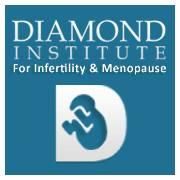Do I Need to Seek Infertility Treatment?

Starting a family is a dream for many people. But it isn’t always easy. About 6.1 million women struggle to conceive or have difficulty staying pregnant. Fortunately, advances in medical technology provide couples who have difficulty conceiving several infertility treatment options. Before you decide to seek treatment, however, here are four questions to ask.
4 Questions to Consider Before Seeking Infertility Treatment
1. Will My Health History Affect My Child?
Many health conditions are genetic—Down syndrome, Huntington’s disease, cystic fibrosis, and Duchenne muscular dystrophy, for example. Take a closer look at your family’s health history and write down a list of possible hereditary conditions. Try to narrow down all conditions spanning at least three generations—including your grandparents—so you’re as informed about your family’s health history as possible.
Conception counseling, in which you speak with your gynecologist or primary health provider about your and your family’s health history, will help you make an informed decision. It will also help your doctor prevent and manage potential issues during pregnancy.
2. Am I Ready to Conceive?
 Trying to conceive can be an arduous process. Whether you’re trying to conceive alone via in vitro fertilization or with a partner, it’s essential to make sure you and your partner are prepared for the challenges ahead. Make sure you have a strong support network outside of your partner and that you make time for yourself and your relationship outside of treatments.
Trying to conceive can be an arduous process. Whether you’re trying to conceive alone via in vitro fertilization or with a partner, it’s essential to make sure you and your partner are prepared for the challenges ahead. Make sure you have a strong support network outside of your partner and that you make time for yourself and your relationship outside of treatments.
3. What is the Cause of My Fertility Issue?
If you have been trying to conceive for some time, you’ll want to be tested to see what is causing your difficulty. Before you consider treatment, it’s important to know why you, or your partner, are having trouble. Several factors from excess weight to smoking heavily can contribute to infertility. In men, low sperm count, slow sperm movement, and health conditions such as mumps can cause infertility.
4. What Are Some Infertility Treatment Options?
There are several infertility treatment options available. These include intrauterine insemination and assisted reproductive technology, which involves removing the egg from the woman’s body and fertilizing it with sperm to create several embryos. The embryos are then implanted into the woman’s body, increasing the chances that at least one will latch and develop into a pregnancy.
For couples who want a different route, surrogacy is another option. Couples can select a surrogate—who is subjected to an extensive family and health background test—and implant their embryos in the woman’s body. Doctors will work with you to select the ideal surrogate for you.
If you’re an Essex County resident, turn to Diamond Institute for Infertility & Menopause for comprehensive, compassionate infertility treatments. Located in Millburn, NJ, they provide low-cost fertility services ranging from IVF procedures to egg freezing and male fertility preservation. Call (973) 761-5600 to schedule a consultation or visit the website to learn more about their services.
About the Business
Have a question? Ask the experts!
Send your question

